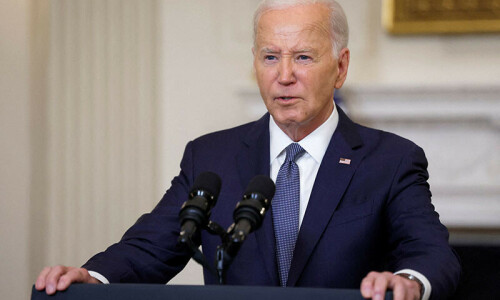THE word 'conference', especially when used in relation to a broad group of political parties, often suggests hours of talk and positive statements without serious engagement or commitment to change. And it's not every day that big business brings together such a group to focus on issues of urgent national importance. On Friday, however, a relatively constructive dialogue organised by the Pakistan Business Council seems to have taken place with the goal of evolving a consensus-based economic agenda for the country. The organisation, whose members include some of the country's largest corporations, reportedly met the leaders of major political parties, including the president, to secure their buy-in prior to the event. Senior party deputies were then sent to participate in the conference, where energy, regional trade, social protection, macroeconomic stability and education were prioritised as key issues. Those attending say participants took an active interest, and that barring some divergences — including on taxation — there was general agreement on a broad economic agenda. The outcome will reportedly be shared with top party leaders again so that a working group can be formed to flesh out the plan in more detail.
A couple of aspects of this effort inspire hope. One, Pakistan's business community has historically been sceptical about engaging with civilian governments, and this departure is a sign of their willingness to place faith in the democratic process. It is also an indication that sections of civil society are willing to take some responsibility for improving Pakistan's state of affairs. Second, the amount of homework done prior to the conference, and the interest shown by party representatives at the event, indicates that those involved recognise the urgency of the need for economic reform.
Two points of caution are, however, worth mentioning. The PBC's members include some of the country's most successful and eminent CEOs. It does not, however, represent labour leaders and other working-class participants in the economy. Bringing these constituencies into the process is not only important for political parties and the democratic process, but could be useful for developing a sustainable policy that takes into account the incentives of a broader range of economic actors. Second, the biggest risk to this effort is that politics will get in the way of positive change. The bipartisan dialogue on economic reform between the PML-N and the PPP earlier this year went up in flames, resulting in a rift between the two parties in Punjab rather than a roadmap for change. One hopes the inclusion of a broader set of players will protect this latest effort from a similar fate.









































Dear visitor, the comments section is undergoing an overhaul and will return soon.